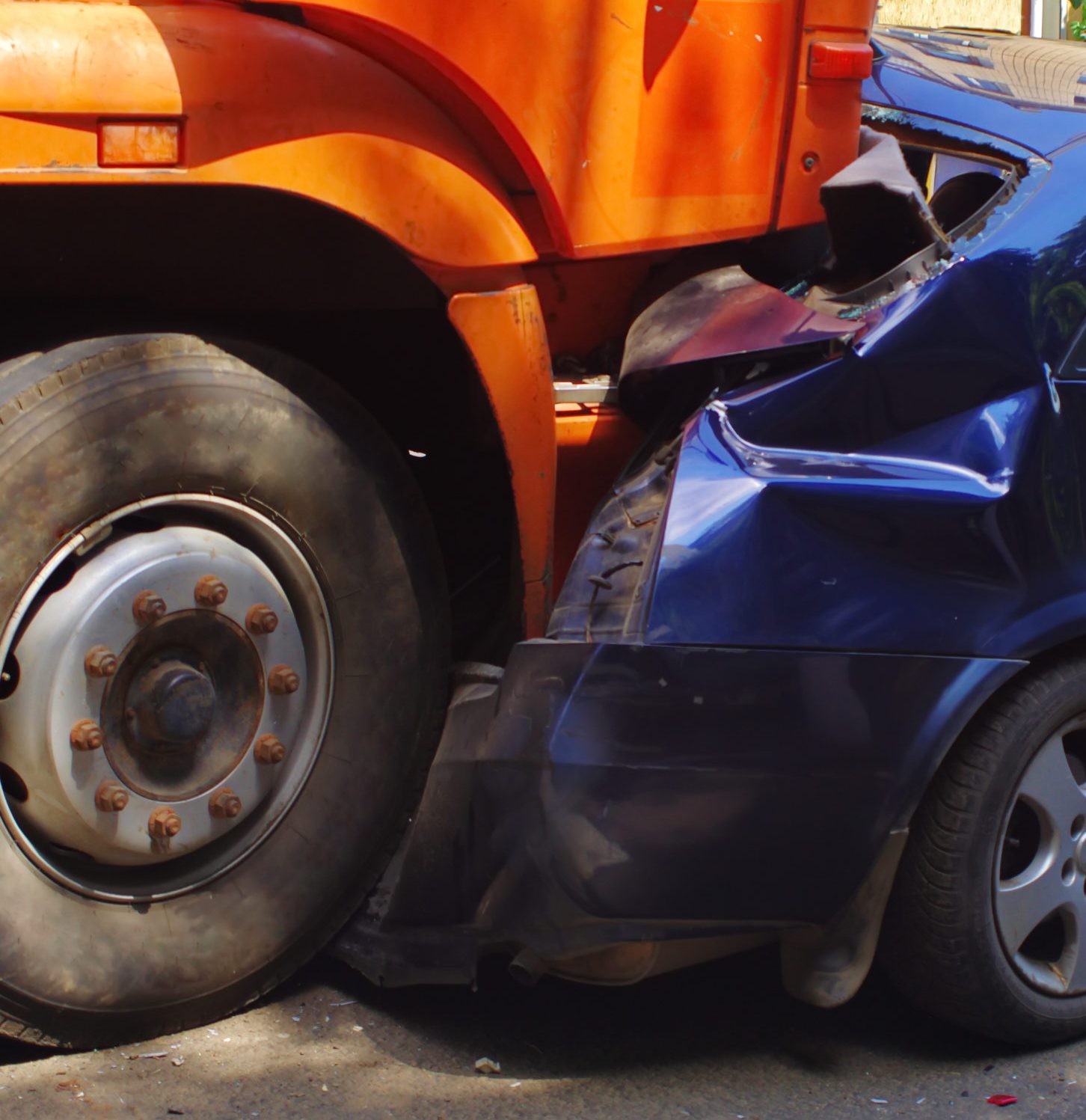Driving can bring out the worst in many people. Whether a person is running late for work, rushing to get home, had a bad day, or just has a bad attitude, what may seem like a minor traffic violation or breach of road etiquette can trigger some drivers and result in aggressive and even raging behavior.
If you or a loved one have experienced serious injuries in a road rage accident—whether physically, emotionally, or materially—you are entitled to financial compensation. An experienced road rage car accident lawyer at Regan Zambri Long PLLC will represent you in a personal injury claim to hold the liable driver accountable for his or her road rage.
Schedule a Free Consultation
Though many drivers admit to expressing exasperation and frustration in the solitude of their car—or sometimes via the horn or a rude gesture—other drivers choose to respond with aggressive driving, verbal assault, and in some cases physical assault.
With more drivers on the roads and an increasingly busy society, cases of road rage become more prevalent. And while most drivers encounter frustration and irritation on occasion, there is no justification for accidents and injuries caused by road rage.
A motor vehicle accident caused by an aggressive driver can result in devastating injuries that could take months to recover from. You may be unable to work and have mounting medical expenses. If this is the case, you need the help of an experienced car accident lawyer who understands how to work with the other driver’s insurance company.
Our legal team has decades of experience in personal injury law. We know how to pursue cases caused by aggressive drivers. Our road rage accident lawyers will investigate your claim, collect the necessary evidence, negotiate your case with insurance companies and take your case to trial if necessary.

Road rage is a term we apply to aggressive driving, one that implies or interprets another driver’s attitude and thoughts.
Aggressive driving is defined by the National Highway Traffic Safety Administration (NHTSA) as a driver who commits a combination of moving traffic violations that endanger other drivers or property. Aggressive driving behaviors can include:
Regardless of whether these behaviors are motivated by rage, impatience, or just poor decision-making, aggressive driving is responsible for thousands of fatal accidents each year. In 2019, nearly 9,000 fatal accidents involved drivers who were either speeding or driving too fast for the road conditions.
The AAA Foundation’s Annual Traffic Safety Culture Index found that millions of drivers admit to aggressive driving behaviors. Approximately 57 million drivers who took the survey say they had recently switched lanes quickly or very close behind another driver.
Approximately 106 million drivers said they had driven 15 mph over the speed limit on a freeway. A study conducted by the foundation found that aggressive behaviors factor into more than half of fatal car accidents.
Though not all aggressive behaviors are caused by road rage or result in a car accident, engaging in aggressive behavior increases the likelihood of an accident because these behaviors are negligent and risky.
Aggressive driving is a kind of negligence. When any driver engages in behaviors that violate traffic laws and endanger other drivers (or pedestrians), that driver is negligent and can be held liable for any accidents he or she causes. Motive is not a primary factor in these kinds of car accidents. Once you and your experienced Washington, DC car accident lawyer prove that the other driver was negligent and caused the accident and your injuries, you will be able to claim compensation from the driver.
Road rage incidents are a little more challenging. The NHTSA puts road rage at the extreme end of the aggressive driving continuum, with the important distinction that aggressive driving is a traffic violation while road rage can be a criminal offense. Extreme incidences of road rage can result in physical assault and even murder.
Differentiating between negligent/aggressive driving and road rage comes down to whether you can prove that the liable driver was intentionally trying to harm you. If you can prove this, you may be entitled to punitive damages, where the aggressor is fined as a punishment, in addition to the compensation for your injuries and property damage.
Determining another person’s motive is always a challenge. However, investigation and eyewitness accounts can often reveal if someone’s actions were intentional or just negligent. The following accidents may leave you with grounds for pursuing a road rage suit and you will benefit from the help of an experienced road rage accident lawyer.
Being run off the road: most drivers have experienced a time when another driver changes lanes without enough room, leading you to slam on your breaks or swerve to avoid being hit. Often these occurrences are negligence—the other driver may be distracted or displaying other behaviors that suggest he or she is in a rush. However, sometimes it is an intentional move executed by an angry driver. If another driver uses his or her vehicle as a weapon against you—regardless of whether a collision actually happened—you may have grounds to sue.
Thrown objects: if a driver throws something at you while on the road you may have grounds for a road rage suit. Any debris thrown from a vehicle can cause an accident as other drivers swerve to avoid the unknown object. When thrown intentionally at another vehicle, an object can cause damage to a vehicle or lead to a single or multi-car collision.
Sideswiping, bumping, or ramming: not every hit-and-run accident is a case of road rage, however, when a driver is in a rage, he or she might use his or her vehicle as a weapon to harm you or damage your vehicle. Enraged drivers might intentionally rear-end or sideswipe a vehicle they think is responsible for their frustration.
Confrontations and altercations: sometimes an outraged driver is willing to follow you until you stop your vehicle so that he or she can verbally or even physically confront you. Other times an aggressor might wait until you have left your vehicle unattended and do things like scratching paint, slashing tires, breaking windows, or even crashing into it.
An important thing to note is that assault does not require actual physical contact—a reasonable fear that harm is imminent is enough to legally qualify as assault. If another driver is threatening you or even making violent gestures toward you, you should still consult with a road rage accident attorney to discuss your options.
Injuries and damages from road rage accidents can be much the same as other car accidents. Whiplash, broken bones, traumatic brain injuries, spinal cord injuries, bruising, and soft tissue injuries can all occur, depending on the severity of the accident.
Road rage accidents and incidents can also cause emotional injuries and damage, including anxiety, nightmares, withdrawal from social interaction, and other symptoms associated with post-traumatic stress disorder. Even if you did not experience physical injury from a road rage incident, you may still be able to hold the aggressor liable for emotional damages—especially if they caused additional hardship in your relationships and ability to work, or resulted in medical bills.
Property damages from road rage accidents and incidents can vary in severity. When a raging driver runs you off the road, your vehicle may only suffer cosmetic damage such as scraped paint or minor dents. However, if an enraged driver uses his or her vehicle to ram into your car or causes an accident involving you and other vehicles, your car may sustain significant body damage, broken windows, and structural or engine damage.

The factors that cause some drivers to be enraged on the road vary by driver and situation. A mixture of societal and personal factors can combine to lead individuals to be more angry and aggressive in general or on a given day. However, the NHTSA suspects the following reasons may contribute to a general increase in aggressive driving.
Another factor for road rage is the behaviors of other drivers. Although each driver is responsible for how he or she responds to other drivers on the road, many drivers engage in behaviors that frustrate otherwise responsible drivers. Negligent behaviors that might trigger road rage or constitute road rage can include:
While you cannot be responsible for how other drivers react to you on the road, you can do your best to mitigate road rage accidents by making sure you are not negligent or aggressive in your driving. When your best efforts are not enough for an outraged driver, the road rage accident lawyers at Regan Zambri Long will be ready to help you seek justice.
Every time you drive your car, you are engaged in a degree of risk. But that doesn’t mean other drivers are free of responsibility to make the roads as safe as possible for all drivers. Incidents of road rage should not be taken lightly. If you or your loved one have been injured or threatened by an aggressive, outraged driver, you should consult with a experienced car accident lawyer at Regan Zambri Long. Your safety is a top priority and if it has been violated you are entitled to compensation.
With decades of individual and cumulative experience, our team of lawyers is rated by Best Lawyers as part of the top 1% in the country. We are ready to bring our experience to your road rage accident and get you the justice and compensation you deserve. Call us today at 202-960-4596 for a free consultation and case evaluation. We won’t charge any fees until we’ve won a recovery in your favor. Road rage accidents and incidents are serious and we will work hard to make sure your aggressor is held responsible. With Regan Zambri Long at your side, you can return to the road with confidence.